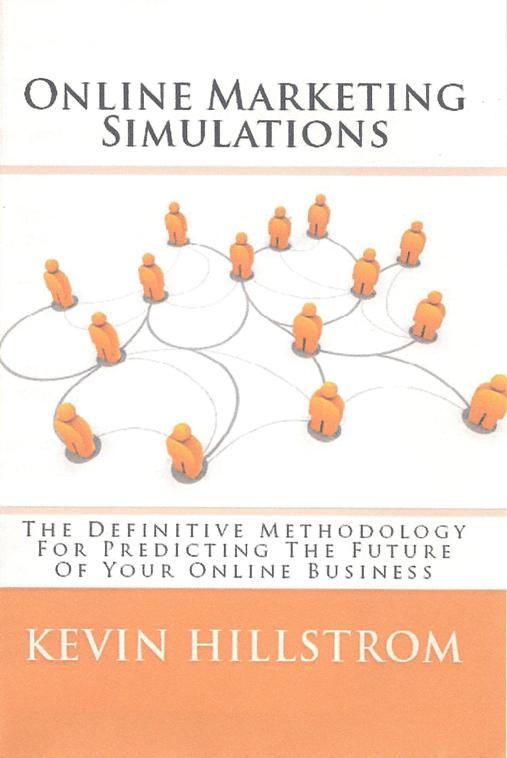Multichannel CEOs and CMOs: How do you make decisions that shape the future of your business?Recently, the best and brightest analytical minds (David, Jim, Ron) lamented the fact that Lifetime Value is not a widely accepted business concept. The concept was re-branded as "Return On Customer", with (at best) marginal corporate acceptance.
Loosely defined, lifetime value is the present value of future profits. Lifetime value frequently appears in two different ways. First, analytical folks focus on an analytical and financial approach to managing the business. Second, brand marketers focus on advocacy of customer rights as a way of increasing long-term shareholder value. If we could only get these two audiences to work together (analytics/finance and brand marketers), we might have something!
In many cases, Lifetime Value is discussed from an "outside-in" perspective. In other words, somebody outside a company (vendor, consultant) is trying to persuade somebody within an organization to purchase services, without knowledge of the real needs of the person "inside" a business. This can give LTV a bad name.
From an "inside-out" standpoint, many companies indirectly measure Lifetime Value.
- Catalogers are particularly good at measuring LTV, they manage list rental activities on the basis of LTV.
- In many cases, the Web Analytics folks don't have the software tools to do LTV measurement. Yet, they indirectly know this is important, because they like to measure the behavior of "new verses existing" visitors.
- Retailers often think of LTV in terms of "market share" or "most admired brand". Regardless whether this is flawed thinking or not, increased market share or being an admired brand deliver some of the benefits of a business with a customer base delivering outstanding LTV.
At some level, all companies and executives think about LTV. They just think about it differently than analytical folks, different than how the customer evangelist folks think about the problem.
Even better, let's get all the LTV evangelists together in a room, and let's see if they do things that are in the best interest of their own personal long-term health and financial benefit?
- We smoke, or drink alcohol, or overeat, all things that reduce our lifespan.
- We don't spend money in the best way. We purchase a Lexus or BMW or Mercedes that will depreciate from $60,000 to $0, when we could buy a Toyota Corolla. How does this decision help our own financial LTV?
- We pay via credit card, then pay interest. How does that help our financial LTV?
- We ignore health issues until they present dire consequences.
How can we expect "brands" to adopt LTV concepts when we don't take care of the LTV of our own financial or health concerns?
Like anything else in life, we know that LTV is good for us. All too often, we fail to follow through on what we know is good for us.
Based on my experiences working with business leaders, most would like to implement some version of LTV (they don't even know it is called LTV --- they just want a healthy long-term outlook that also generates lots of short-term profit). However, most Executives don't want the database marketing analyst hounding them about their thoughts and decisions.
- LTV is risk-averse. LTV might suggest that Apple focus on their core competency of making computers & software, might suggest they not invest in an unproven MP3 player that requires a significant capital investment.
- LTV tells you to invest in things that "work". Want to add new products to a catalog mailed to prospects? You can't, because new products probably don't have as good a LTV as existing products.
- Want to invest in a new creative representation of your "brand". You can't. LTV tells you that the existing creative is what is liked most by customers.
- Want to add a new catalog to your contact strategy? You can't, because LTV is telling you that you are over-saturating the mailing of your customers, lowering overall profitability.
- Want to add a third e-mail to the weekly contact strategy? You can't, because LTV tells you that too many customers opt-out after receiving more than two e-mail campaigns a week.
- Is your business in trouble, do you need to liquidate merchandise to open up your "open to buy"? Don't add a clearance catalog, because you'll lower the LTV of your full-price customers by converting them to full price + sale customers.
From time to time, LTV proponents struggle to see the business the way the Executive sees the business. Similarly, Executives make short-term decisions that mortgage or sub-optimize the long-term value of the business. Somewhere in-between these viewpoints represents the appropriate way to implement ROI-based decision-making within a business. That in-between place requires a culture that is willing to accept this thought process. Those cultures are hard to find.Labels: Lifetime Value, LTV, Return on Investment, ROI


